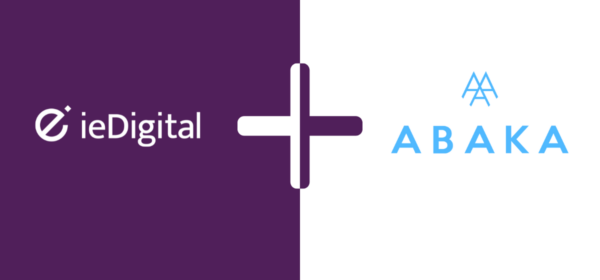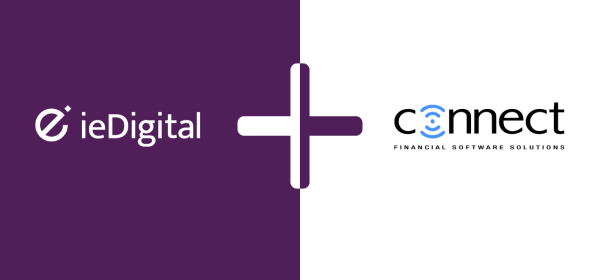What were your main takeaways from the recent BSA Conference? Was there anything that you thought was unexpected?
I don’t think unexpected, but quite pleasing in a lot of respects. I’ve worked with building societies for almost 20 years now, and in the past I’ve been a little frustrated with the speed of progress from a digital perspective. But I think over the last 12-18 months, there’s some real momentum building within the societies; looking to see how they can make digital work for them. Maybe in the past there was a little bit of reticence in trying to copy banks, or thinking that the investment required to drive some of the digital agenda wasn’t available to them.
But you can sense the energy or urgency now. So what’s changed in the last 18 months?
I think, even outside building societies – the market has never been as exciting as it is at the moment. You’ve got initiatives like open banking driving lots of thought-provoking things, you’ve got the fintech market exploding, and you’ve got customers who are being persuaded by new propositions for the market. Standing still is not an option.
I think a number of societies have been through strategic reviews, and digital is becoming absolutely key for their futures. I think the question really is, what flavour of digital do they go for rather than is it something that they’re going to be doing.
They are different, aren’t they – there are different opportunities that building societies can take that perhaps larger banks can’t.
Yeah, that’s very true. If you think of the two things that building societies particularly focus on, it’s the localness in the vast majority of societies, and it’s that knowledge of the customer. Banking 30 years ago was exactly that: you walked in the branch and people would know your name and you’d have a personalised service. My pitch at the BSA Conference was about communication; how you enable communication digitally to ensure that you keep the element of personalisation and communication going, even if the customer selects digital as their preferred channel. It doesn’t mean that they don’t want to continue to talk to you, it’s just that they’ve selected digital as the channel they’d like to do it in.
Communication is a good blend of all the channels, to accommodate older clientele and younger customers.
Absolutely right. It’s really important you do give the customer the ability to use whatever channel they feel most comfortable with. We’ve got a fintech partner, for instance, in the secure chat area; secure messaging app. People are familiar with WhatsApp in their personal lives, so why not make it nice and easy to communicate through a secure app?
Key, obviously, is to make sure those channels are joined together, so that when somebody tells you they may be looking for a mortgage in 12 months through one channel, you can ensure that you’re communicating and pushing out offers through all the channels that they use.
I saw a recent figure that showed 660,000 customers switched energy supplier recently. Can building societies take advantage of people’s increasing willingness to switch services?
It’s an interesting one. The model is slightly different. My perception is, for many years children have had accounts opened for them through grandparents and parents – child saver accounts – and building societies have got a good share of the market. It’s that gap between the child and when they’re looking for their first mortgage that’s the biggest challenge from a society’s perspective – to stay relevant during that period of time.
Digital can help that relevance. A number of societies are looking at pseudo current accounts with payment facilities around that. But just some of the money management tools you can provide around that as well could close that gap, and make sure that when people are looking for their first mortgage, their local society is the obvious place for them to go.
I suppose people are not actually switching out from one financial provider to another, they’re just getting the different services from different places.
And that’s where playing to your key strengths is vital. You don’t want to just become a product provider sitting behind a brand that may be a challenger bank, that may be a high street bank. It’s making the most of your localness and your knowledge of the customer; the local suppliers you can bring to bear in the home-buying chain, for instance. Those are all differentiators that a first-time buyer may well go to their local mortgage provider through their local broker.
What do you on the roadmap for building societies investing in technology over the next couple of years?
Every time I do this, I’m slightly over-optimistic on the speed of change. Genuinely this time, I think there’s enough traction out there to see some quite big changes. To go back to my comment about open banking earlier, that provides the opportunity for societies to be able to use data in a very constructive way to make the journey much easier. The vast majority of reasons for building societies to do this is around mortgages. A process of applying for a mortgage is an arduous task just because there are so many people in that ecosystem. The sharing of data, the ability to move across an ecosystem very easily and quickly – to be able to reduce the average timescale of 43 days to get that mortgage – and sifting that data through, dealing with different providers, whether that’s a solicitor or a broker, to ensure the customer only has to input data once and we make the journey much easier for the consumer. I think that’s going to be the main focus. There’s so much more we can do.
Removing that friction.
Exactly. People will go through a lot wanting to buy a house. The honest answer when you look at sales across the industry is that we don’t do enough to make that consumer journey satisfactory at the moment. I think that will be a huge focus.
Anything specifically in debt recovery and collections?
I think there is a slightly odd position at the moment that you have 50%+ people who have chosen digital as their preferred channel, and as soon as you get into some financial difficulty, those channels are often taken away from you and you’re called 50 times until you finally relent and speak to your lender.
I think at last there seems so be recognition across the industry that best practice would involve the use of digital technology. Open banking again helps, because you can start to fill in that income expenditure form in a matter of minutes rather than the 45-50 minutes it can take over the phone.
For me, it’s a very simple and easy use case, and I’m amazed that more haven’t already put digital solutions in place to take advantage of that. People are in a distressed state when they’re in a collections scenario, and to have a non-judging digital interface to work with, whether that’s a secure app or an online portal, for a lot of people it would be a more preferred route than having somebody they have to talk to.














